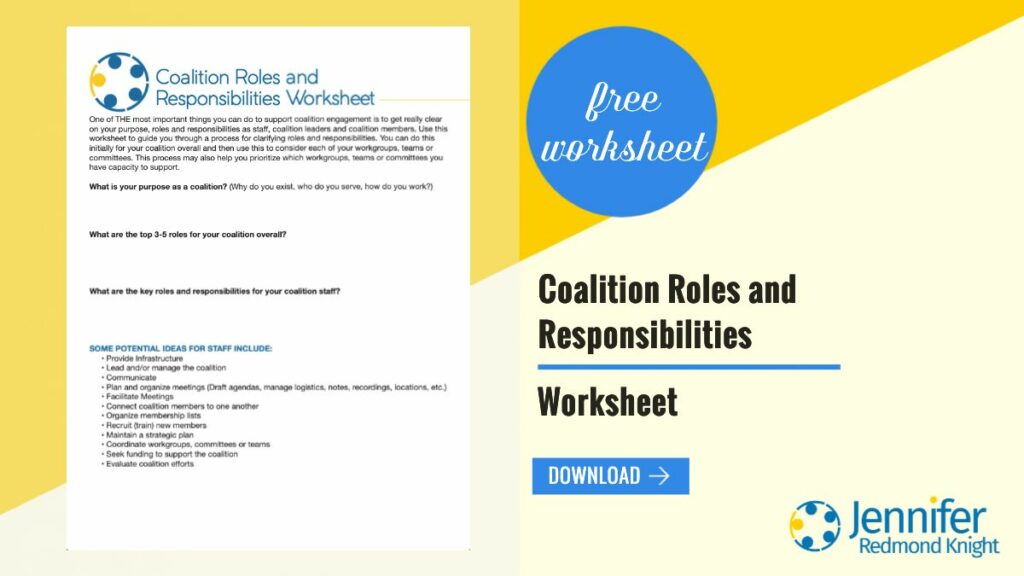The reason many people join a coalition or get involved in a partnership is because they want to do something to make a difference in a cause or topic they want to support. While the organization they work for may be sending them to the coalition, the reason they work for the like-minded organization is because they want to make a difference. Many coalition members become impatient if they are not able to implement right away; however, it is important to become clear on laying the foundation to implement through planning, engaging, combining, and prioritizing. When the coalition is ready to implement, they have done the work of figuring out how to work together and what is most important for them to do right now. Join me this week as I highlight three questions to consider to support implementation.
How will we implement it?
You will want to consider the level of complexity and areas of expertise needed for implementation. In many situations, you have a workgroup or committee that leads the implementation of a particular strategy. You may also want to consider sub-groups depending upon the nature of the work. For instance, one of the areas that I worked on during my early days of coalition building was increasing colorectal cancer screening. Our coalition recognized that it was multi-faceted and that we needed to consider policy changes, community outreach and clinician education in order to make progress toward our goal. If you are not sure how to implement the work, then talk with your coalition about what components are necessary and consider the right structure for you right now. You may not have capacity to support multiple workgroups at this time so you need to focus on one area and then grow and expand once you have made progress.
Who will implement it?
As you are considering how you will implement the work, one of the important considerations is who will be responsible for implementation. In most coalitions, you will have different people providing staff support, volunteer leadership and active engagement in the implementation work. This is where clarifying roles and responsibilities is particularly important. Who will convene the meetings, take notes, facilitate the conversation, provide subject-matter expertise, develop the deliverables, communicate with the group, monitor progress and share results? When we implement as a coalition, we have multiple people playing different and complementary roles as we work together. One of the biggest challenges I find in coalition work is the struggle with one or two people feeling like they are doing “all the work.” Communicating expectations, understanding the desired deliverable(s) and clarifying roles and responsibilities help overcome this common challenge.
What resources will we need to implement it?
As you consider “how” and “who,” you also want to recognize the resources needed to implement. When you combine efforts, you are able to assess what resources are available and what resources are needed. Do you have a dedicated staff person to support this implementation? Is there funding available to support this work? Are there already other organizations working in this area willing to share their expertise and existing efforts? Once you reflect on the resources needed, you may need to modify your initial plans and align your expectations with your resources. Alternatively, you may need to actively pursue additional resources so that you can implement the work as desired by your coalition.
All three of these steps work together and may need to be reconsidered as you develop your plans. During this step, you will want to develop a more detailed “action plan” that takes your overall strategies and develops specific tactics (or actions) with timelines, people responsible and resources needed. As you implement, you may discover that you need to re-organize, re-assign, recruit or re-energize or find additional resources to do the work.
As you consider your coalition implementation efforts, one of the aspects I highlighted in the “who” step was clarifying roles. If you would like more support in this area, check out my free Coalition Roles and Responsibilities worksheet.

Photo by KOBU Agency on Unsplash

